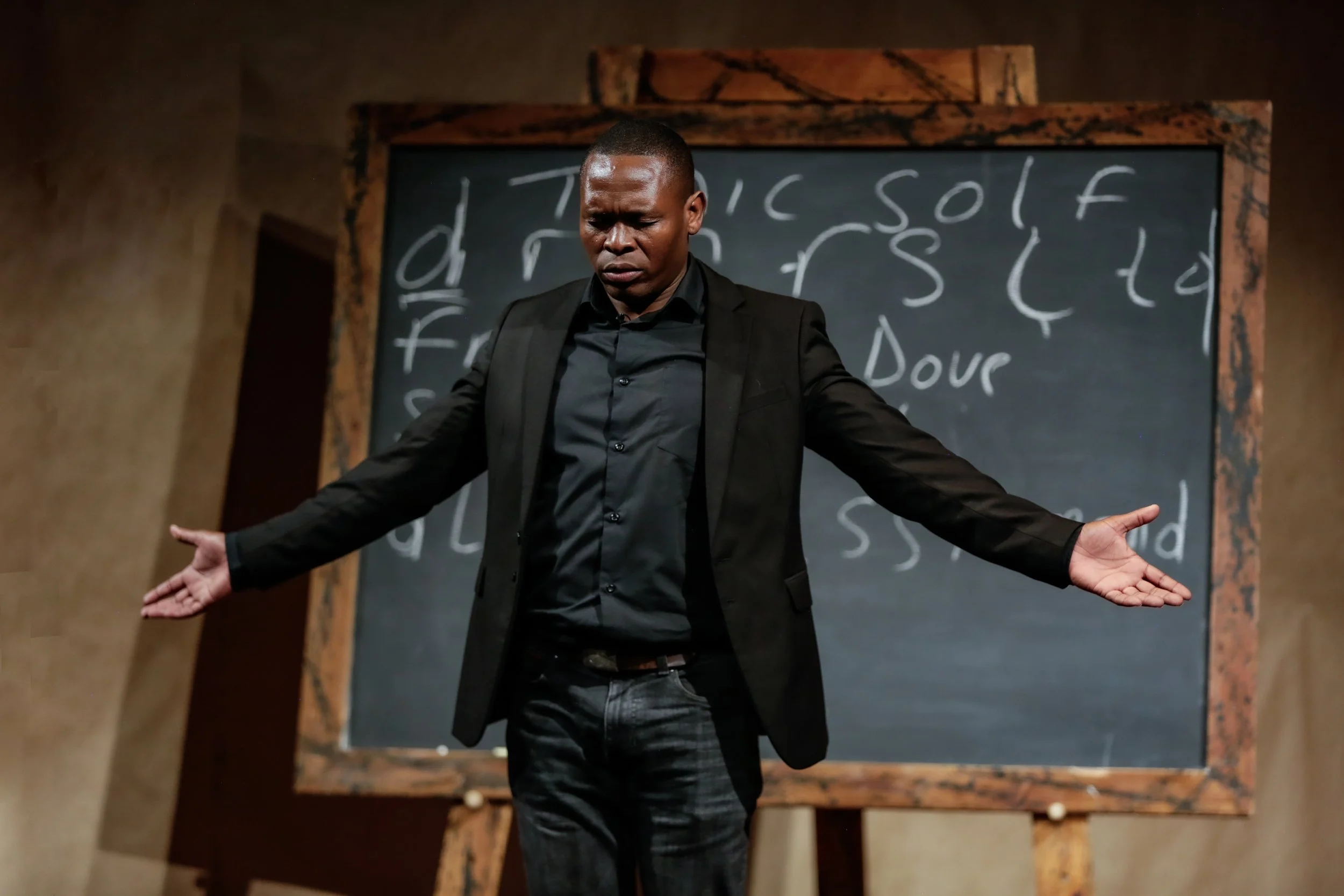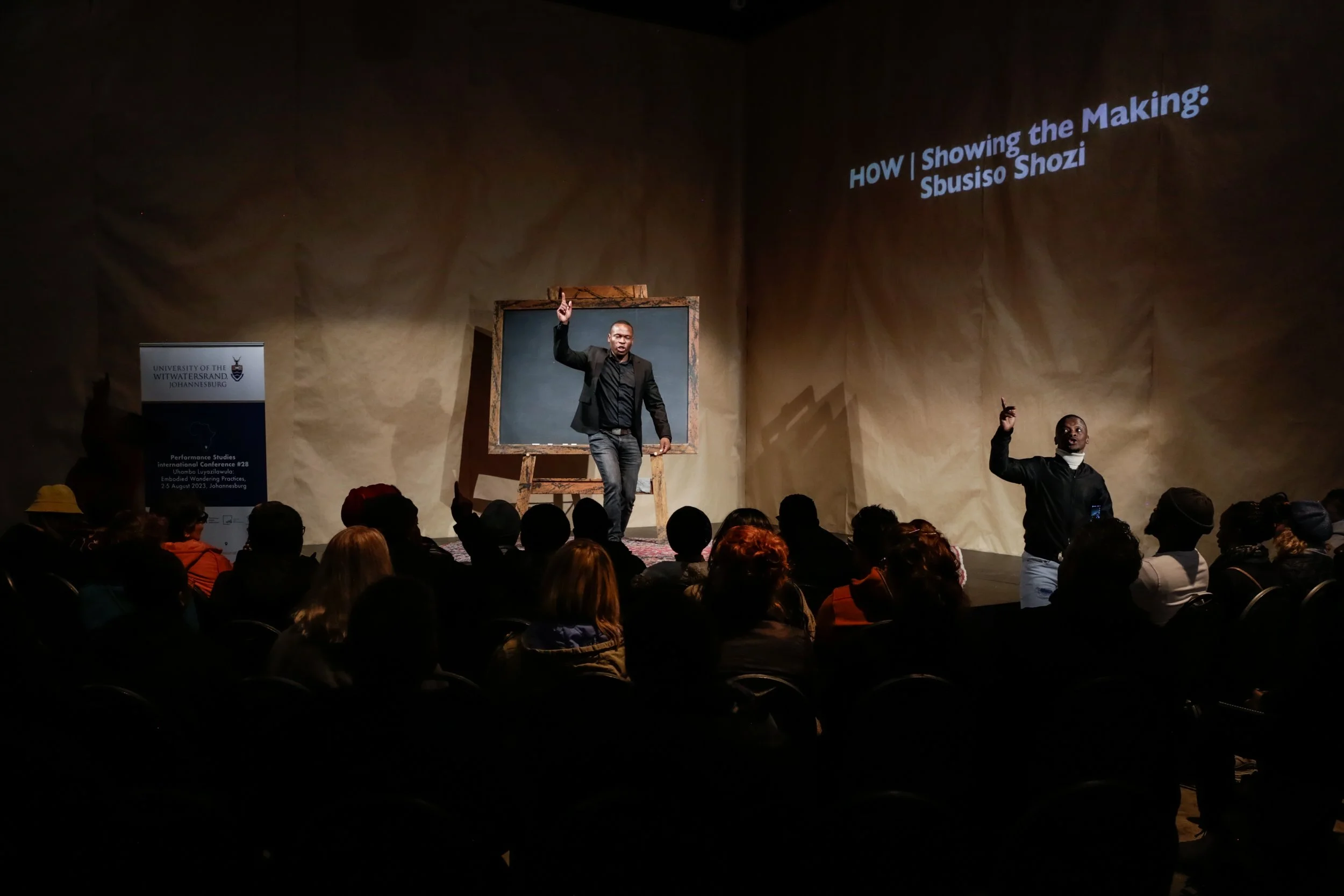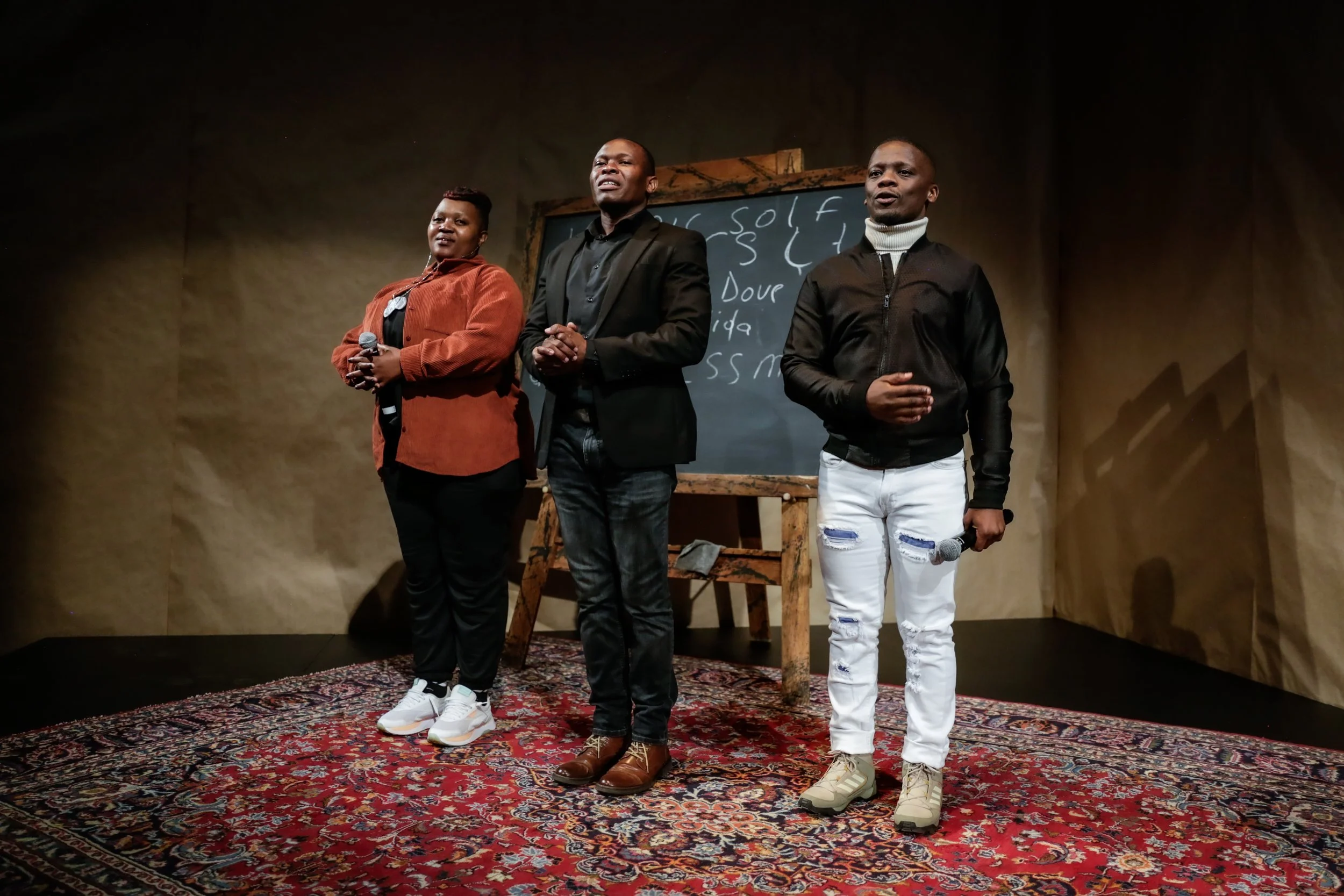He moves into the music immediately, gathering sound and language from the audience in the form of greetings – “Sanibonani”, “Dumelang”, “Molweni”, “Bonjour” – and builds up to a live, collective composition. Here, the melodic patterns and rhythms embedded in language, are extended into music.
On Thursday 3 August, SO | The Academy for the Less Good Idea presented one of its signature programmes, HOW | Showing the Making, as a performative keynote offering in the 2023 Performance Studies International (PSi) conference.
This HOW | Showing the Making featured composer, theatre-maker and regular collaborator of The Centre, Sbusiso Shozi. Here, Shozi speaks to his interest in exploring the origins of African music and its intersections with language and culture.
Collective composition
Through an active engagement with the audience, and with the help of vocalists Dikeledi Modubu and Xolisile Bongwana, Shozi facilitates a ‘learning through doing’, and looks at, among other things, memory as a compositional tool, and how the tonality of language informs music.
Through co-authoring the experience, and actively participating in the sound and melody being produced in this keynote offering, the audience embodies Shozi’s own processes and methodologies.
Similarly, in as much as this HOW provides insight into Shozi’s practice – through a mode that blends performative lecture and participative instant composition – it also turns its gaze towards the praxis, approach and ethos of The Centre for the Less Good Idea.
To compose is to listen
“I don’t follow Western styles of musical composition, but I do borrow from the Tonic Sol-fa technique,” explains Shozi.
On a recent trip home to KwaZulu-Natal, he explains, it was both the absence and presence of sound that resonated with him, providing the material for a rich soundscape. In the more rural reaches of the province, away from any major cities and their respective sounds – traffic, construction, urban noise pollution – Shozi embraced the stillness and listened. A different soundscape emerged. Here, Shozi engaged with the sounds of braying cows, the coo-ing doves, and the shrill call of the hadedah.
The HOW largely follows the structure of this journey, using the trip to KwaZulu-Natal as a throughline to address Shozi’s compositional strategies and processes: listening, working with found sound, memory, lived archives and more.
A “gatherer of found sounds”, Shozi folds these sounds back into his lecture, using the tonic sol-fa technique to create another collaborative composition. This is something Shozi describes as a process of “extracting the implicit musicality from the sounds that surround us.”
Intergenerational dialogue through song: an impetus for creative research
A key component of Shozi’s research into composition involves the notion of the song as archive, and a tool for intergenerational dialogue.
“My mother has been my archive for so many years. She remembers everything,” Shozi explains. Specifically, it is the melodies of his grandfather, and of his great-grandfather, that she conveys to him. While the melody of his grandfather has been used in Shozi’s African Exodus, it is the melody of his great-grandfather – one held in the body and in memory – that Shozi shares with the room: Heya. Heyahe. Nganginomona wasendulo.
Here, once again, meaning is made through collaborative composition, and certain histories and forms of knowledge are embodied in this collective making and doing. Also evident, explains Shozi, is the reconciling of past and present, made possible through accessing and activating the embodied melody. As Shozi demonstrates, the learning is only fully possible in the doing.
— David Mann
CREDITS:
CONCEPTUALISERS | Athena Mazarakis & Sbusiso Shozi
PERFORMERS | Sbusiso Shozi, Dikeledi Modubu & Xolisile Bongwana
This HOW | Showing the Making was co-produced by The Centre for the Less Good Idea and Performance Studies International (PSi), in partnership with the Wits Theatre and Performance and Drama for Life.


